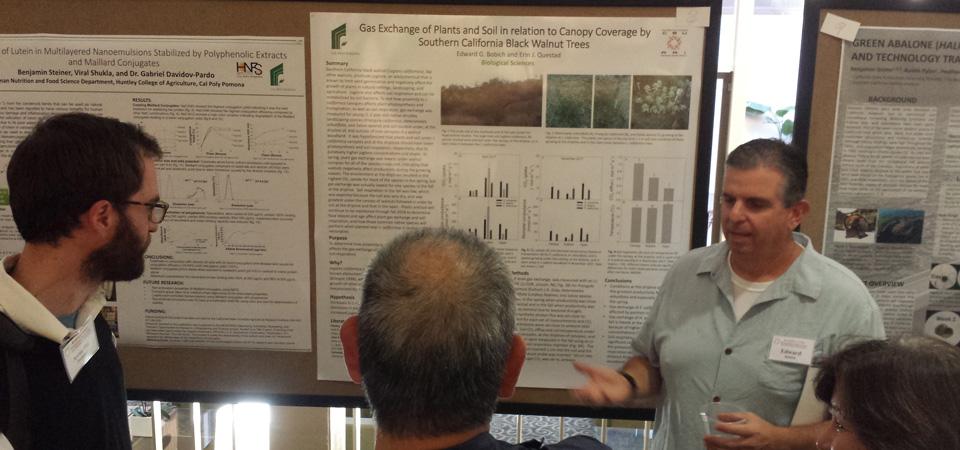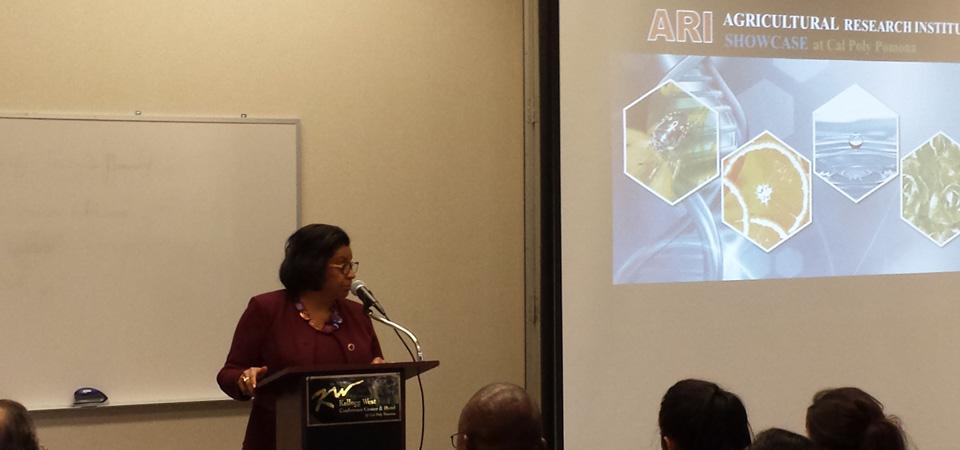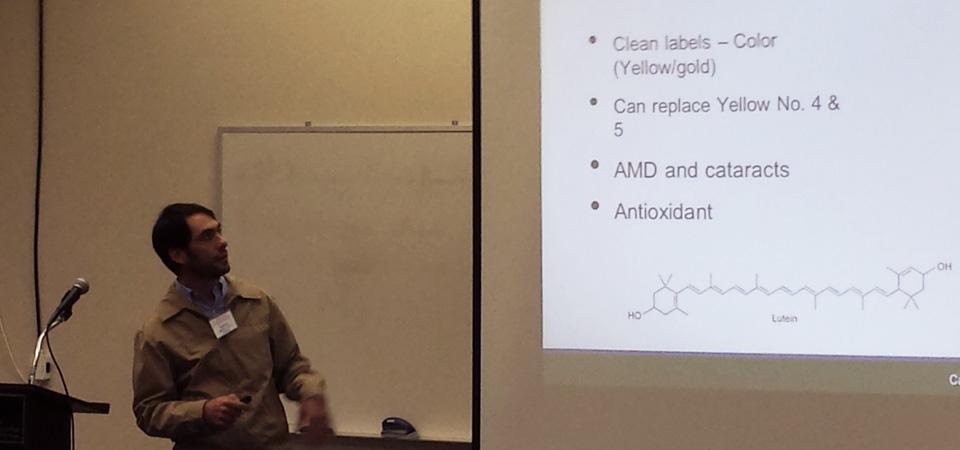ARI Showcase Highlights Ag Research Projects
Slideshow
This slideshow contains 3 slides that will change every 8 seconds. The first button is to play and pause the slideshow, followed by buttons to go to the previous slide, next slide, or choose individual slides.
-

Slide1
A group at the Cal Poly Pomona Agricultural Research Institute showcase discusses a research project poster presentation about gas exchange between plants and soil under canopy coverage from Southern California black walnut trees.
Using nanoparticles and visible light to eliminate a pesticide from
These are just some of the topics that faculty and students presented at the 17th Annual Cal Poly Pomona Agricultural Research Institute Showcase on Dec. 1 at the Kellogg West Conference Center.
The showcase is intended to highlight research projects that are funded through the California State University Agricultural Research Institute (ARI). ARI, which counts six CSU campuses as members or associates, supports research projects that explore immediate and practical solutions facing California agriculture.
This year’s showcase highlighted only Cal Poly Pomona projects from the Huntley College of Agriculture and the colleges of Engineering and Science.
Aaron Fox, an assistant plant science professor, worked on a project that explored whether vacuuming was an effective means of stopping the Bagrada bug from inflicting damage on crops such as turnips at the university’s Spadra Farm.
The project found that vacuuming can’t stop outbreaks of the bug after it happens, but it can reduce bug populations. Fox worked with six students from the plant science, agribusiness and food industry management/agricultural science, and biological sciences departments.
Aerospace Engineering Professor Subodh Bhandari, Computer Science Professor Amar Raheja, and Plant Science Lecturers Mohammad Chaichi and Robert Green are collaborating on a project to test how effectively aerial drones equipped with sensors and machine learning can detect crop stresses.
Faculty and students in the Department of Electrical & Computer Engineering and Cal State Fullerton’s Department of Chemistry & Biochemistry are researching with nanoparticles and visible light can help remove a common pesticide, Propanil, from
Other faculty presented updates on projects that ARI has funded over several years. The projects included
- efforts to raise a type of wasp native to Pakistan (Tamarixia
radiata ) to prey upon and prevent the Asian citrus psyllid from spreading a deadly citrus disease - testing whether farmers can use algae raised in dairy
waste water to feed cattle safely - developing breeds of lettuce that require less nitrogen.
For a full list of the projects and their abstracts, click here.


